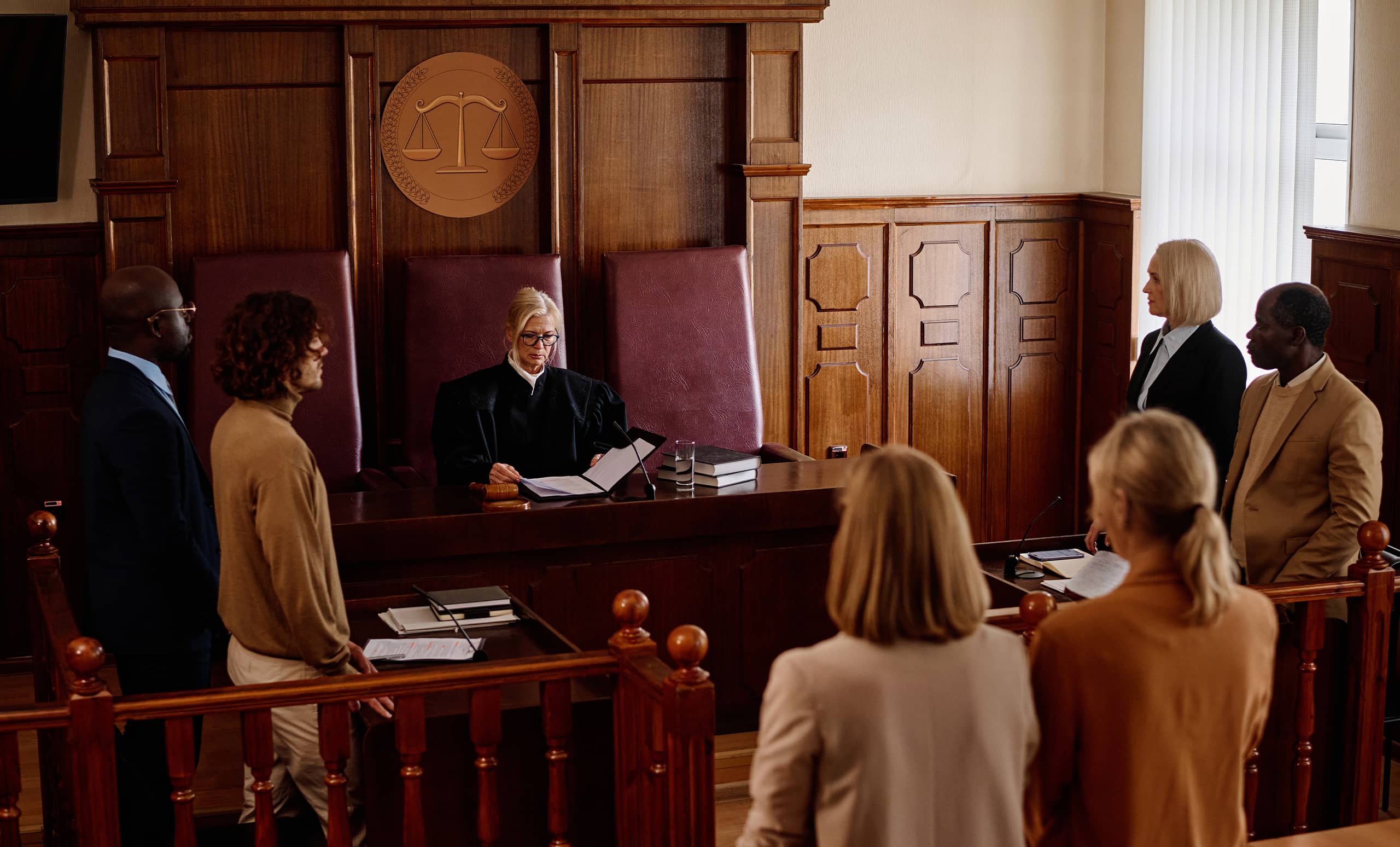HOW CAN PENAL CODE 1016.5 BE USED TO VACATE MY PLEA?
Post Conviction relief in criminal court can enable non-citizen immigrant defendants to continue their lives in the United States. Penal Code Section 1016.5 is a powerful law that enables an immigrant defendant to set aside an adverse conviction to prevent adverse immigration consequences if he or she can prove they were not properly advised of immigration consequences. Penal Code Section 1016.5 was enacted by the California Legislature to protect immigrant defendants who may suffer from adverse immigration consequences as a result of entering a plea to a crime in California Superior Court. This law has enacted this law in 1977 to protect a special class of defendants, namely defendants facing immigration consequences in immigration court.
Under section 1016.5, subdivision (a), defendants must be advised that conviction of the offense for which they have been charged may have the consequences of deportation, exclusion from admission to the United States, or denial of naturalization pursuant to the laws of the United States.” The California Supreme Court in the decision of People v. Patterson (2017) has held, however, that the words “may have” in a section 1016.5 immigration advisement are not adequate immigration advisement for defendants charged with serious controlled substance offenses. It was reasoned that defendants must be advised that they will be deported, excluded, and denied naturalization as a mandatory consequence of the conviction. The Court in the Patterson decision said, “A defendant entering a guilty plea may be aware that some criminal convictions may have immigration consequences as a general matter, and yet be unaware that a conviction for a specifically charged offense will render the defendant subject to mandatory removal.” Therefore being advised “may” with some serious charges can be found to be inadequate given the nature of the offense. For some offenses, a non-citizen defendant must be advised that immigration consequences are mandatory.
Motion to Withdraw Plea Under Section 1016.5
Section 1016.5(a) requires the trial court, prior to accepting a plea of guilty or nolo contendere, to give the defendant the following advisement on the record: “If you are not a citizen, you are hereby advised that conviction of the offense for which you have been charged may have the consequences of deportation, exclusion from admission to the United States, or denial of naturalization pursuant to the laws of the United States.” Upon receiving the advisements, “[t]he section contemplates a period during which the defendant, without risking the loss of the existing plea bargain, can reconsider its value in light of the immigration consequences that will result from it and attempt to negotiate a different bargain that will not have the same consequences.” People v. Martinez (2013).
Legislative Purpose of Section 1016.5
The legislative purpose of section 1016.5 is expressly stated in the statute: “[I]t is the intent of the Legislature in enacting this section to promote fairness to such accused individuals by requiring in such cases that acceptance of a guilty plea or plea of nolo contendere be preceded by an appropriate warning of the special consequences for such a defendant which may result from the plea.” §1016.5, sub. (d). If a noncitizen defendant is not properly advised of the immigration consequences of his guilty or no contest plea, the statute provides a remedy: “[I]f… the court fails to advise the defendant as required by this section and the defendant shows that conviction of the offense… may have the consequences for the defendant of deportation, exclusion from admission to the United States, or denial of naturalization pursuant to the laws of the United States, the court, on defendant’s motion, shall vacate the judgment and permit the defendant to withdraw the plea of guilty or nolo contendere and enter a plea of not guilty.” §1016.5(b).
“[T]he legislative purpose of section 1016.5 is to ensure a defendant is advised of the immigration consequences of his plea and is given an opportunity to consider them. So long as the advisements are given, the language of the advisements appears in the record for appellate consideration of their adequacy, and the trial court satisfies itself that the defendant understood the advisements and had an opportunity to discuss the consequences with counsel, the legislative purpose of section 1016.5 is met. People v. Ramirez (1999), citing People v. Quesada (1991). For a lawful permanent resident or undocumented resident who is not advised of adverse immigration consequences pursuant to Penal Code Section 1016.5 then you are in the class of individuals that the California Legislature intended to protect with the enactment of this penal code.
PROTECTING THE INTERESTS OF IMMIGRANT DEFENDANTS
Prior to the 1977 enactment of Penal Code Section 1016.5, a defendant could file a petition seeking relief from a judgment on the ground that the defendant was unaware of the immigration consequences of a guilty plea, but the defendant had no legislative right to be advised of harsh immigration consequences. Thus a defendant could not via a petition seek relief on the ground that the trial court failed to advise him or her of adverse immigration consequences prior to entering his or her plea. Penal Code Section 1016.5 changed that and provides that an immigrant defendant must be made aware of relevant immigration consequences when he or she enters a guilty plea.
A Court Must Advise of Immigration Consequences
Subdivision (a) of Penal Code 1016.5 requires that prior to accepting a guilty or no contest plea to an offense, not an infraction; a court must advise the defendant concerning specified immigration consequences.
Penal Code Section 1016.5 Provides A Remedy If the Court Fails to Advise
Subdivision (b) of Penal Code 1016.5 provides a remedy if a court fails to give the requisite advisements and the guilty plea may have specified immigration consequences. The remedy allows a defendant to move the court to vacate the judgment, withdraw the plea, and enter a plea of not guilty.
Immigrants Suffering Immigration Consequences Must Be Advised of Those Consequences
California Supreme Court case law in the Zamudio case has since interpreted Penal Code 1016.5 to require that an immigrant defendant show first that the trial court failed at the time of that plea to advise the immigrant defendant of the immigration consequences. Second, the defendant must show that there exists at the time of the Penal Code 1016.5 motion more than a remote possibility that his or her conviction will have one or more of the specified adverse immigration consequences. And third, the defendant must show that properly advised the defendant would not have pleaded no contest in the first place. Importantly, the Zamudio Court noted, absent a record that the court provided the advisement required by this Section, the defendant shall be presumed not to have received the required advisement per Penal Code Section 1016.5(b).
Defendants Must Be Advised In The Context Of The Plea
Defendants Must Be Advised In The Context Of The Plea
Penal Code Section 1016.5 contains an express statement of legislative intent that requires defendants to be advised during the context of the plea. Penal Code Section 1016.5 was written by the California Legislature because it was concerned about the many instances involving an individual who is not a citizen of the United States charged with an offense punishable as a crime in which a plea of guilty or nolo contendere is entered without the defendant knowing that a conviction of such offense is grounds for deportation, exclusion from admission to the United States, or denial of naturalization pursuant to the laws of the United States.
Penal Code Section 1016.5 subsection (D) of the Penal Code was enacted to promote fairness to such accused individuals by requiring in such cases that acceptance of a guilty plea or plea of nolo contendere be preceded by an appropriate warning of the special consequences for such a defendant which may result from the plea. It is also the intent of the Legislature that the court in such cases shall grant the defendant a reasonable amount of time to negotiate with the prosecuting agency in the event the defendant or the defendant’s counsel was unaware of the possibility of deportation, exclusion from admission to the United States, or denial of naturalization as a result of a conviction. Thus, the advisement must occur within the context of taking the plea.
Actual Innocence
Substantial Compliance With The Law
The court in the Soriano decision held that the exact language of the warning is not crucial. As long as the court advises of the three possible consequences an immigrant defendant can suffer as a result of the entry of the criminal plea.
A REMEDY FOR IMMIGRANT DEFENDANTS
Penal Code Section 1016.5 provides a remedy for immigrant defendants that enter a guilty or no-contest plea in criminal court. The law in pertinent part states, the Court shall administer the following advisement on the record to the defendant,
IF YOU ARE NOT A CITIZEN, YOU ARE HEREBY ADVISED THAT CONVICTION OF THE OFFENSE FOR WHICH YOU HAVE BEEN CHARGED MAY HAVE THE CONSEQUENCES OF DEPORTATION, EXCLUSION FROM ADMISSION TO THE UNITED STATES, OR DENIAL OF NATURALIZATION PURSUANT TO THE LAWS OF THE UNITED STATES. Penal Code 1016.5(a)
Prosecutors Must Prove That A Defendant Was Advised
A rebuttable presumption is written into the law placing the burden of proving that the immigrant defendant was advised according to the law on the Prosecutor.
ABSENT A RECORD THAT THE COURT PROVIDED THE ADVISEMENT REQUIRED BY THIS SECTION, THE DEFENDANT SHALL BE PRESUMED NOT TO HAVE RECEIVED THE REQUIRED ADVISEMENT. Penal Code 1016.5(b)
The law provides a remedy if the court fails to act in its duty to advise the immigrant defendant properly. The remedy is written into the statute,
THE COURT ON DEFENDANT’S MOTION, SHALL VACATE THE JUDGMENT AND PERMIT THE DEFENDANT TO WITHDRAW THE PLEA OF GUILTY OR NOLO CONTENDERE AND ENTER A PLEA OF NOT GUILTY. Penal Code 1016.5(b)
The Prosecutor Must Prove that the Section 1016.5 Advisements Were Given
The California Appellate Court rule established in the case of People v. Dubon holds that Penal Code Section 1016.5 establishes a rebuttable presumption affecting the burden of proof. This presumption places upon the prosecutor the burden of proving that the immigrant defendant was advised of harsh immigration consequences resulting from the entry of the guilty or no contest plea. The legislative purpose of Penal Code 1016.5 is clearly stated with in the statute.
The Legislature finds and declares that in many instances involving an individual who is not a citizen of the United States charged with an offense punishable as a crime under state law, a plea of guilty or nolo contendere is entered without the defendant knowing that a conviction of such offense is grounds for deportation, exclusion from admission to the United States, or denial of naturalization pursuant to the laws of the United States. Therefore, it is the intent of the Legislature in enacting this Section to promote fairness to such accused individuals by requiring in such cases that acceptance of a guilty plea or plea of nolo contendere be preceded by an appropriate warning of the special consequences for such a defendant which may result from the plea.
The California Legislature enacted this law to promote fairness for immigrant defendants that enter a plea of guilty or no contest in California criminal court. This law was made to ensure that defendants facing immigration consequences fully understand how the conviction will affect their immigration situation.
The Prejudice Requirement in a CA Penal Code 1016.5 Motion
In order for a defendant to be successful in a Penal Code 1016.5 motion the defendant must demonstrate that he or she has suffered prejudice. In order to do this the defendant must show that he or she faces one or more of the statutorily specified immigration consequences, namely deportation, denial of admissibility, and denial of naturalization. Case law in the Zamudio decision notes that prejudice is established if it can be shown he or she would not have not pled no contest if properly advised. Moreover in the Zamudio decision, the court found that a showing of prejudice does not require the defendant to show that had the case gone to trial, a different and more favorable outcome would probably have resulted. The standard is that so long as the court is satisfied that the petitioner would have pled guilty if he had been properly advised, the possible outcome at trial, to the degree it can be discerned, is immaterial.






